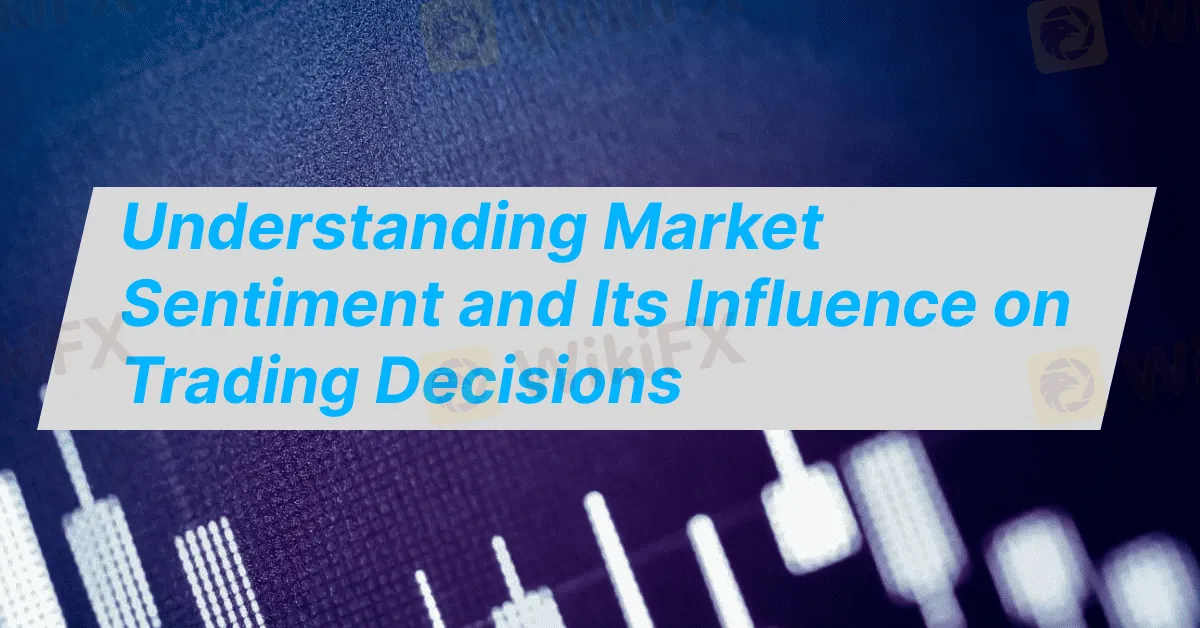Understanding Market Sentiment and Its Influence on Trading Decisions
Abstract:market sentiment plays a pivotal role in influencing price movements and trader behavior. Understanding market sentiment can provide valuable insights that help traders make informed decisions. This article delves into what market sentiment is, how it is measured, and its impact on trading strategies.

market sentiment plays a pivotal role in influencing price movements and trader behavior. Understanding market sentiment can provide valuable insights that help traders make informed decisions. This article delves into what market sentiment is, how it is measured, and its impact on trading strategies.
What is Market Sentiment?
Market sentiment refers to the overall attitude of traders and investors towards a particular currency or the forex market as a whole. It encompasses emotions, biases, and psychological factors that drive market movements. Positive sentiment can lead to bullish trends, while negative sentiment can trigger bearish movements.
Factors Influencing Market Sentiment
Economic Indicators: Economic data releases, such as GDP growth, employment figures, and inflation rates, significantly affect market sentiment. Positive data often boosts confidence, while negative reports can lead to pessimism.
Geopolitical Events: Political instability, elections, and international relations can sway market sentiment. Traders closely monitor news events to gauge potential impacts on currency values.
Market News and Analysis: Analyst forecasts, market commentaries, and financial news can shape traders' perceptions and lead to collective market movements.
Technical Analysis: Patterns and indicators derived from price charts can influence traders' sentiment, creating self-fulfilling prophecies in price movements.
Measuring Market Sentiment
Sentiment Indicators: Various indicators help quantify market sentiment, including:
Commitment of Traders (COT) Report: This weekly report details positions held by different trader categories, helping assess market sentiment.
Market Sentiment Indexes: These indexes aggregate trader opinions, providing a snapshot of bullish or bearish sentiment.
Social Media and Online Forums: Analyzing discussions on platforms like Twitter, Reddit, or trading forums can offer insights into prevailing sentiment among retail traders.
Surveys: Surveys conducted by financial institutions can gauge investor sentiment, reflecting the market's mood.
Impact of Market Sentiment on Trading Decisions
Trend Identification: Traders can leverage market sentiment to identify potential trends. A strong bullish sentiment may indicate an upward price trend, prompting traders to buy. Conversely, widespread bearish sentiment could signal a downward trend, leading traders to sell.
Contrarian Strategies: Some traders adopt contrarian strategies, going against prevailing sentiment. When sentiment is excessively bullish or bearish, it may indicate a market reversal is imminent.
Risk Management: Understanding sentiment helps traders manage risk. If sentiment shifts dramatically, traders may adjust their positions to protect against sudden market movements.
Integrating Market Sentiment into Trading Strategies
Combine with Technical Analysis: Use sentiment analysis alongside technical indicators to enhance decision-making. For instance, if sentiment is bullish but technical indicators show overbought conditions, it may signal caution.
Stay Informed: Regularly monitor economic news, geopolitical developments, and sentiment reports to stay ahead of market shifts.
Emotional Discipline: Recognize the influence of emotions on trading decisions. Avoid impulsive trades driven by fear or greed by grounding your decisions in sentiment analysis.
Conclusion
Understanding market sentiment is crucial for successful forex trading. By gauging the collective mindset of traders, forex participants can make more informed decisions, identify potential trends, and manage risk effectively. Integrating sentiment analysis with technical and fundamental strategies can enhance trading performance and lead to more consistent results. As the forex market continues to evolve, staying attuned to market sentiment will remain a vital aspect of a trader's toolkit.

Read more

Why Do You Feel Scared During Trade Execution?
Trade execution is a pivotal moment for traders. It is when analysis turns into action, and potential profits or losses become reality. However, for many traders, this moment is accompanied by fear. Why does this happen, and how can you address it?

Pros and Cons of Choosing Unregulated Forex Brokers
Discover the pros and cons of unregulated forex brokers, explore risks, benefits, and key features, and learn how to evaluate their credibility with the WikiFX app.

5 Questions to Ask Yourself Before Taking a Trade
Before executing any trade, traders should pause and ask themselves critical questions to ensure they are making rational and well-informed decisions. Here are five questions to help you reflect on your strategy, manage risk, and control emotions before entering the market.

The Psychology of Investment Scams: Understanding Why Victims Fall Prey
Investment scams have become increasingly sophisticated, preying on human psychology to exploit vulnerabilities. While these fraudulent schemes promise extraordinary returns, they often rely on psychological tactics to deceive victims. Understanding these factors can help traders recognise and avoid falling for scams.
WikiFX Broker
Latest News
Volkswagen agrees deal to avoid Germany plant closures
Geopolitical Events: What They Are & Their Impact?
Top 10 Trading Indicators Every Forex Trader Should Know
TradingView Launches Liquidity Analysis Tool DEX Screener
MultiBank Group Wins Big at Traders Fair Hong Kong 2024
WikiEXPO Global Expert Interview: Simone Martin—— Exploring Financial Regulation Change
'Young investors make investment decisions impulsively to keep up with current trends' FCA Reveals
Why Do You Feel Scared During Trade Execution?
CySEC Settles Compliance Case with Fxview Operator Charlgate Ltd
Malaysian Influencer Detained in Taiwan Over Alleged Role in Fraud Scheme
Rate Calc
